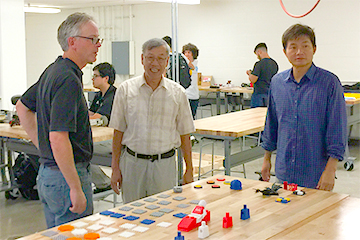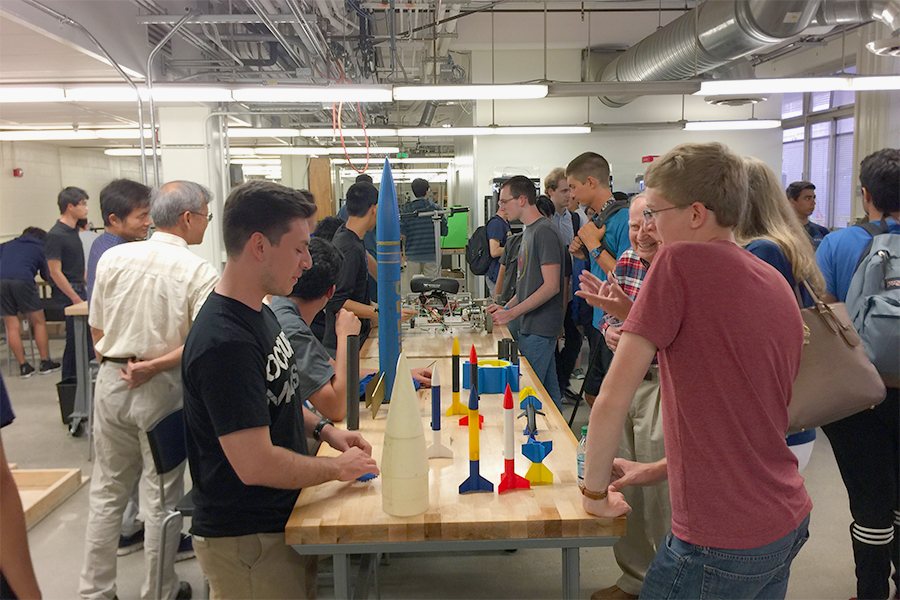By UCLA Samueli Newsroom
3D printers, a virtual reality system, electronics fabrication tools and more are available, free of charge, for personal projects and group activities.
The UCLA Samueli School of Engineering opened a new 9,000-square-foot student makerspace in Boelter Hall at the start of the academic year.
There, students can build personal projects, hold group activities such as workshops and hackathons, and participate in a robot hockey league. The space will be supervised by trained student staff members, and will be open, free of charge, to all UCLA students.

What kinds of things can students make there?
“Anything from an Arduino-based obstacle-avoiding, Bluetooth-controlled rover with a laser-cut acrylic chassis, to a 3D printed model rocket can be built in the space,” said Caleb Lessard-Clouston, a third-year mechanical engineering major and part of the student staff.
“This space will provide an enormous number of students with the ability to unleash their creative sides,” he added. “And I have no doubt that great things will come as a direct result of the learning that takes place in the new makerspace.”
An open house for the UCLA community was held on Wednesday, September 26 from 4:00 – 6:00 pm. Students interested in staff positions can sign up on the makerspace web site (coming soon).
Located on the first and second floors of Boelter Hall, the makerspace includes 12 3D printers; laser cutters; tools for light machining; circuit board printers; reflow oven; electronics fabrication and test equipment; embroidery machine; and a dedicated virtual reality system. There are plans to add bioprinters and other wet lab tools later this academic year. Tentative opening hours this fall are 10:00 am – 6:00 pm M-F, increasing as staff positions are filled.
“This new makerspace will be a place for students to use their imaginations, learn new skills, and work with each other to design, build, and create,” said Jacob Schmidt, professor of bioengineering who has been overseeing the creation of the new space. “The facility will be almost entirely student-programmed—this is their space and we’re really excited to see it open and what they’ll do in it.”
The space is also the location for new lower-division, project-based undergraduate classes covering engineering design. Possible class projects include rockets, both 3D-printed and larger high-powered models; go-karts; 3D printed pharmaceuticals; electrocardiogram machines; and virtual reality games and controllers.
The new makerspace adds to the university’s available offerings at Rieber Hall in student housing, the Lux Labs in Powell Library, and Young Research Library.

